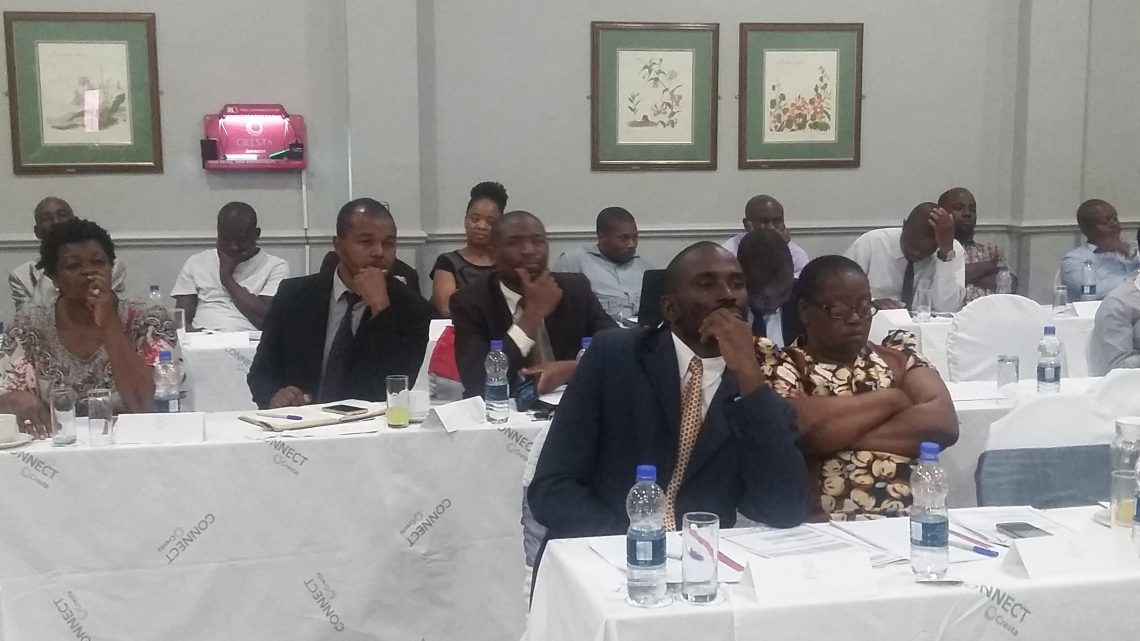By Byron Mutingwende
A Cabinet minister has noted that Zimbabwe was on an economic growth trajectory from 2009 to 2017 but without much reduction in poverty levels and underscored the need to promote and accelerate inclusive growth through improved policies.
In a speech read on his behalf at a workshop to review the 2017 Zimbabwe Agenda for Sustainable Socio Economic Transformation (ZIMASSET) blueprint, the 2030 Agenda, the national investment policy, special economic zones and the harmonisation of investment laws, Simbarashe Mumbegegwi, the minister of macro-economic planning and investment promotion underscored the need to reduce poverty levels in the country.
“Zimbabwe was on an economic growth trajectory from 2009 to 2017 but without much reduction in poverty levels. The advent of SDGs seeks to promote and accelerate inclusive growth and poverty reduction through improved policies. This is consistent with the ZIMASSET Vision: ‘Towards an Empowered Society and a Growing Economy’. Poverty eradication strategies and interventions continue to be embedded in all economic programmes crafted and implemented by Government.
“It is against the background of these continental and global developments that Government and all relevant stakeholders find it prudent to collectively implement SDGs in the country,” Mumbengegwi said.
The minister emphasised that the Sustainable Development Goals (SDGs), also known as Agenda 2030, is a global development agenda which seeks to end poverty, protect the planet and ensure that all people live in peace and prosperity. He said SDGs were a successor programme to the Millennium Development Goals (MDGs) that came to an end in December 2015. The SDGs were crafted in 2013 and 2014 and eventually adopted by the Heads of State and Government of the United Nations (UN) Member States, at the organisation’s headquarters in New York in September 2015.
As it stands, Africa played a major role in the drafting of the SDGs through the Common African Position (CAP) adopted by the AU. The Common Africa Position was largely informed by Agenda 2063 which is Africa’s 50 Year Development Vision, which runs from 2013 to 2063. This continental vision is meant to transform African economies in their entirety.
Mumbengegwi said the ZIMASSET and the Ten Point Plan both identify investment as a key pillar for achieving the country’s growth and development goals.
“The Government, in its quest for promoting investment growth, has taken into account the concerns that investors have expressed over the investment environment in the country and has come up with a number of initiatives and reforms aimed at improving this environment. These activities include the ease of doing business reforms, which exercise is spearheaded by the Office of the President and Cabinet (OPC), the promulgation of the Special Economic Zones (SEZs) Act in 2016, the launch of the One Stop Shop Investment Centre (OSS) in 2010 in order to streamline all investment approvals and the clarification of the Indigenisation Act, among other initiatives.”
Speaking at the same occasion on the implementation of SDGs in Harare province, Graciano Nyaguse, a director in the ministry of economic planning and investment promotion said given the several attributes that investment brings to any economy or region in the form of expansion of economic activity, creation of employment opportunities, enhanced incomes, reduction of poverty, it becomes imperative that the provincial authorities correctly identify their natural resource endowments which can be packaged into investment opportunities for the province for both domestic and foreign investors.
Nyaguse revealed that the poverty prevalence level of Harare province stood at 35.7% (Poverty Atlas 2015) against a national average of 72.
With regards to the proportion of households whose distance to a main water source more than 1 km away, the province stood at 0.6% against a national average of 12%. In terms of the proportion of households with access to electricity, the province stood at 75.8% against a national average of 40.6%. (Second highest after Bulawayo at 91%). In 2015, the country’s GDP grew at 3.2% while in 2016 only 2.7% GDP growth rate was registered.
In a speech read for her, Nomaqhawe Gwere, the Programme Manager of the National Association of Non-Governmental Organisations (NANGO) said civil society organisations play a critical role in development.
“CSOs identify and share crucial development priorities and propose practical solutions and policy opportunities as stakeholders implementing on the ground in order to give a voice to the less priviledged and most marginalized citizens. They ensure that local/national resources are mobilized for those who are most vulnerable and that their needs are reflected in local development plans and national public policies.
In that regard, Gwere said CSOs must be given access to formal roles, guaranteeing their participation in clear consultation processes on government implementation plans and measures, formal representation mechanisms which oversee implementation efforts channels for participation in accountability processes, amongst others at all levels.






